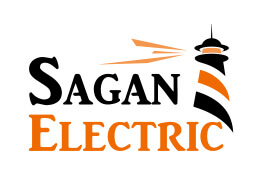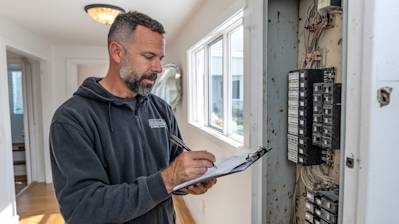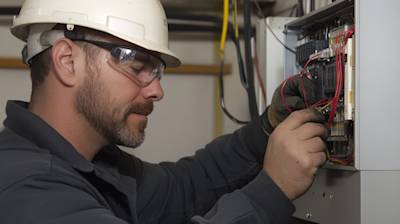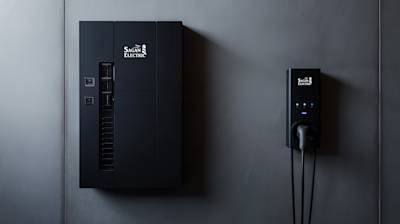Are you experiencing incessant electrical issues in your home and have been advised to get your electrical panel replaced? Or perhaps you're planning on a significant renovation or upgrade, which necessitates a higher electrical load than what your current panel can handle? The question on your mind is likely, "how much will the cost be to replace my electrical panel?" This blog will provide you with a comprehensive understanding of the various factors influencing the cost to replace an electrical panel and will guide you in planning your budget accordingly.
Understanding electrical panels
An electrical panel, sometimes known as a breaker box or circuit breaker panel, is the main distribution point for electrical circuits in your home. It's where electricity from the grid enters your house and is split into separate circuits to distribute power. The panel is designed to shut off circuits in case of an overload, thereby playing a crucial role in preventing fires. Having a properly functioning electrical panel is vital for the safety and efficiency of your home's electrical system.
Factors influencing the cost to replace an electrical panel
The average cost for replacing an electrical panel ranges from $800 to $2,500, depending on certain variables. Let's delve into what these variables encompass:
Type and capacity of the new panel
The cost of a new panel is determined by its type – main breaker or main lug – and its capacity. The more the capacity (measured in amperes), the more expensive the panel. A 100-amp panel, which is standard for many homes, can cost anywhere from $50 to $200, while a more powerful 200-amp panel can cost from $130 to $500.
Labor costs
Labor costs fluctuate based on the electrician's rate and the complexity of the work involved. On average, electricians charge between $40 and $100 per hour. If the replacement involves major rewiring or the installation of a new circuit, the cost increases.
Cost of permit and inspection
In most states, replacing an electrical panel requires a permit and an inspection by a building department official to ensure the work complies with the National Electrical Code (NEC). The cost for permits varies by location, typically falling in the $50 - $200 range.
Cost of upgrading the electrical meter
If the electrical panel upgrade requires a meter upgrade to handle the increased power load, electric companies will charge for this, too. This cost is usually in the range of $300 - $500.
Materials and supplies
- Electrical wire - $4 to $6 per ft
- Breakers - $5 to $40 each
- New metal electrical box (if required) - $20 to $35
Average costs to replace electrical panels based on capacity
Let's break down the approximate average costs by panel capacity:
100-amp panel
This is suitable for most homes under 1,500 square feet. The replacement cost is typically between $800 to $1,200, including labor and materials.
150-amp panel
Homes between 1,500 and 2,500 square feet often use this. The cost here ranges from $900 to $1,500.
200-amp panel
This is best suited for larger homes over 2,500 square feet or those with numerous high-amp appliances. Prepare to pay somewhere between $1,300 to $2,500 for this upgrade.
Important considerations when replacing your electrical panel
Upgrading an electrical panel is not a DIY project – it must be handled by a licensed electrician. Moreover, if you live in an older house with outdated wiring or a non-compliant electrical panel, additional modifications will likely be essential alongside panel replacement, increasing the cost. As a homeowner, you must be proactive about the state of your electrical systems, not merely for the safety it ensures but also for the increased resale value your house will enjoy with a modern, efficient electrical panel.
FAQs About the Cost to Replace Electrical Panel
Why would I need to replace my electrical panel?
There are several reasons why you may need to replace your electrical panel, such as outdated components or inadequate power supply. Frequent tripping, dimming lights, and faulty circuit breakers are some signs that you may need a panel replacement.
How much does it usually cost to replace an electrical panel?
The cost to replace an electrical panel varies based on several factors. You can expect to pay anywhere from $500 to $2,000 on average, but the actual price could be more or less, depending on specific factors like the size and type of the panel and the complexity of the installation.
What factors influence the cost to switch out an electrical panel?
The primary factors that influence the cost include the amperage of the new panel, the brand and type of panel, the cost of labor, and any additional elements such as permits and inspections.
Does it cost more to replace an electrical panel in an older home?
Yes, the age of your home could impact the cost to replace an electrical panel. Older homes might require rewiring or additional updates to comply with modern safety standards, which can increase the overall cost.
Can I save money by replacing the electrical panel myself?
While it’s technically possible to replace an electrical panel yourself, it’s not recommended. Working with electricity can be dangerous if you aren’t experienced and knowledgeable. It’s always best to hire a professional for this kind of job to ensure it's done safely and correctly.
Does the type of electrical panel affect the replacement cost?
Yes, the type of electrical panel you choose can have a significant impact on cost. Higher-end models or those with more circuits may cost more. Make sure to discuss your needs with a professional before you make a decision.
Is it cost-effective to move an electrical panel during a replacement?
Moving an electrical panel during a replacement can be expensive due to the additional labor and materials required. However, in some cases, it may be necessary for safety or convenience. Always consult with a professional electrician to determine the best location for your panel.
Can replacing an old electrical panel decrease my energy costs?
While replacing an electrical panel itself might not directly decrease your energy costs, it can improve the overall efficiency and safety of your electrical system. If your old panel is causing issues, a new one could potentially save you money on repairs and energy in the long run.
How long does it typically take to replace an electrical panel and can this affect the cost?
Replacing an electrical panel can take anywhere from a few hours to a full day, depending on the complexity of the job. As with any service, longer labor times usually result in higher costs.
How often should an electrical panel be replaced?
Average lifespan of an electrical panel is about 25-40 years. However, it should be inspected every few years by a professional to make sure it’s still functional and safe. If you're frequently experiencing electrical problems, it might be time to consider a replacement regardless of age.
Pros of Replacing an Electrical Panel
Safety Improvements
One of the primary benefits of replacing an electrical panel is the significant boost to your home's safety.
-
Risks associated with electrical fires or electrocution can be reduced when an old or faulty panel is replaced with a modern one.
-
Modern electrical panels come with features such as circuit breakers and ground-fault circuit interrupter (GFCI) outlets, which cut off the power supply when abnormal flow of electricity is detected.
-
Replacing an outdated electrical panel can also mean getting rid of potentially dangerous components, such as those found in old fuse boxes or panels with known defects like certain Federal Pacific Electric models.
Accommodating Growing Electrical Demands
With a new electrical panel, you can meet the increasing electrical demands of contemporary living.
-
A new panel could provide more circuits, allowing for the addition of more electrical appliances and devices in your home without the risk of overloading.
-
Some houses might still be equipped with a 60-, 100-, or 125-amp panel when today's common demands require a 200-amp panel. Updating to this can improve the overall functionality of home appliances.
Improving Home Value
A new electrical panel can add to the property value.
-
Home buyers usually prefer homes with modern and safe electrical systems, hence replacing an old electrical panel can make your home more attractive on the real estate market.
-
A new electrical panel could potentially decrease your homeowner's insurance premiums, as insurers may consider homes with certain types of older panels as higher risk.
Cons of Replacing an Electrical Panel
High Costs
The cost to replace an electrical panel can be a significant drawback.
-
The average cost to replace an electrical panel ranges from $800 to $2,500, depending on your location, the complexity of the replacement, etc.
-
Additional costs may occur in the form of permits or if the electrician discovers further issues during the replacement process.
Temporary Inconvenience
There is temporary inconvenience associated with the replacement of an electrical panel.
-
The process of replacing an electrical panel generally results in a temporary power outage which might be inconvenient.
-
The replacement process might also require wall repairs if the panel is installed in a finished area of your home.
Other Potential Issues
There can be unwanted complications during the process of replacing the electrical panel.
-
During the replacement, electricians might discover unpermitted wiring or other potentially unsafe conditions that would need to be addressed, increasing the overall cost.
-
If you live in an older home, additional updates may be necessary to meet current code requirements. For example, your electrician might inform you that your home needs to be rewired which is an additional expense.
Summary
Replacing an electrical panel can seem like a daunting task, but it's necessary for the safety and functionality of your home. The cost to replace electrical panel mainly depends on several factors including the size of your home, the type of panel you choose, and the region where you live. And while it may feel like a hefty project, it is a worthwhile investment that ensures your home remains safe, up-to-date, and efficient.
Bearing in mind the cost to replace electrical panel is not something you'd do frequently, it's worth investing in a good quality panel that will last longer and provide seamless service. Although the cost is influenced by a variety of factors, remember this isn't a place to cut corners. The safety and efficiency of your household's electrical systems is paramount, and ensuring they are functioning correctly will help to prevent potential mishaps.
Finally, it's always worth getting more than one quote when looking to replace your electrical panel. The cost to replace electrical panel can significantly vary between different electricians. Therefore, shopping around, doing your research, and making informed decisions ensure that you're not paying over the odds. Above all, the peace of mind, knowing the work has been done correctly and safely is priceless. That's why replacing your old electrical panel is a sound decision.
About Sagan Electric
Welcome to Sagan Electric, your trusted electric service provider in Sacramento, CA. We are renowned for our exceptional service, professionalism, and commitment to customer satisfaction. Since our inception, we have dedicated ourselves to offering comprehensive electrical services to our customers, both residential and commercial. Whether it's a small repair, a major installation or regular maintenance, we ensure every job is completed to the highest standard. With Sagan Electric, the solution to every electrical problem is just a call away.
Tags: Electrical Panels, Cost, Replacement,








